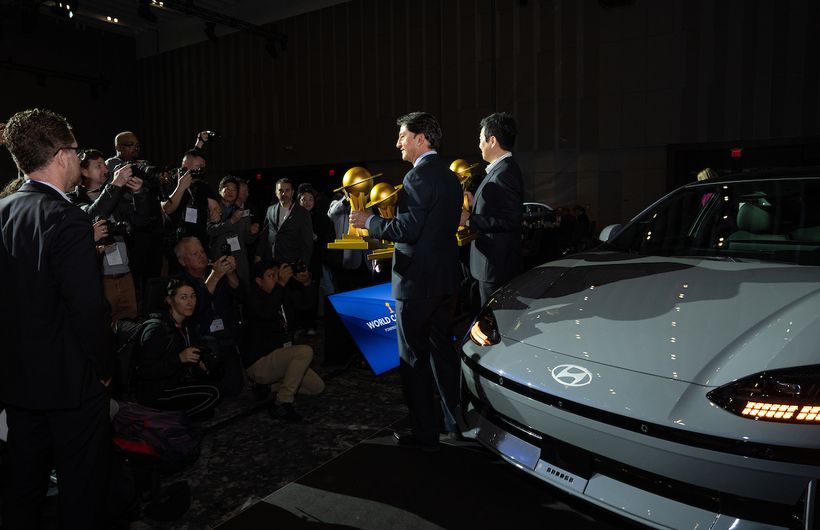Hyundai has picked up a hat trick at the prestigious 2023 World Car Awards, with the IONIQ 6 named World Car of the Year, World Electric Vehicle and World Car Design of the Year, at a ceremony held at the New York International Auto Show (NYIAS).
A jury of 105 automotive journalists from 32 countries, including Electrifying.com founder Ginny Buckley, chose the IONIQ 6 from the top three finalists, which included the Kia Niro and BMW X1/iX1. This is Hyundai’s second straight triple honours at the World Car Awards. Last year, the jury named IONIQ 5 the winner in the same three categories.
“We are thrilled to receive this prestigious honour two years in a row, which recognises the tremendous talents and unrelenting efforts of everyone at Hyundai Motor Company to bring EVs like IONIQ 6 to market,” said Jaehoon Chang, President and CEO of Hyundai Motor Company.
In February SangYup Lee, Executive Vice President and Head of Hyundai Global Design Centre was named the 2023 World Car Person of the Year for his vital contribution to concept and production cars. The 53-year-old Korean designer was behind some of the most creative concept and production cars unveiled throughout last year, including the Ioniq 6, Kona and N Vision 74.
It is the second year in a row that the honour has gone to a member of the Hyundai team, it was won last year by Luc Donckerwolke, president for design and chief creative officer at Hyundai Motor Group.
Collecting his award for World Car of the Year - which has been redesigned by former World Car award winner Ian Callum - SangYup Lee said: “We always want to connect with customers on an emotional level and with the design of the IONIQ 6 we have created truly one of a kind. The daring streamliner styling combines strong emotional appeal with aerodynamic efficiency to give exceptional range.”
In an interview at the global reveal of the new Hyundai Kona SangYup Lee told us that being recognised by the World Car Awards was a huge honour for both himself and his team.
Hyundai plans to introduce 17 new fully-electric models by 2030, including Genesis luxury brand models, and aims to boost annual global electric sales to 1.87 million units by 2030.
 The awards were presented at a ceremony held at the New York International Auto Show
The awards were presented at a ceremony held at the New York International Auto Show 











